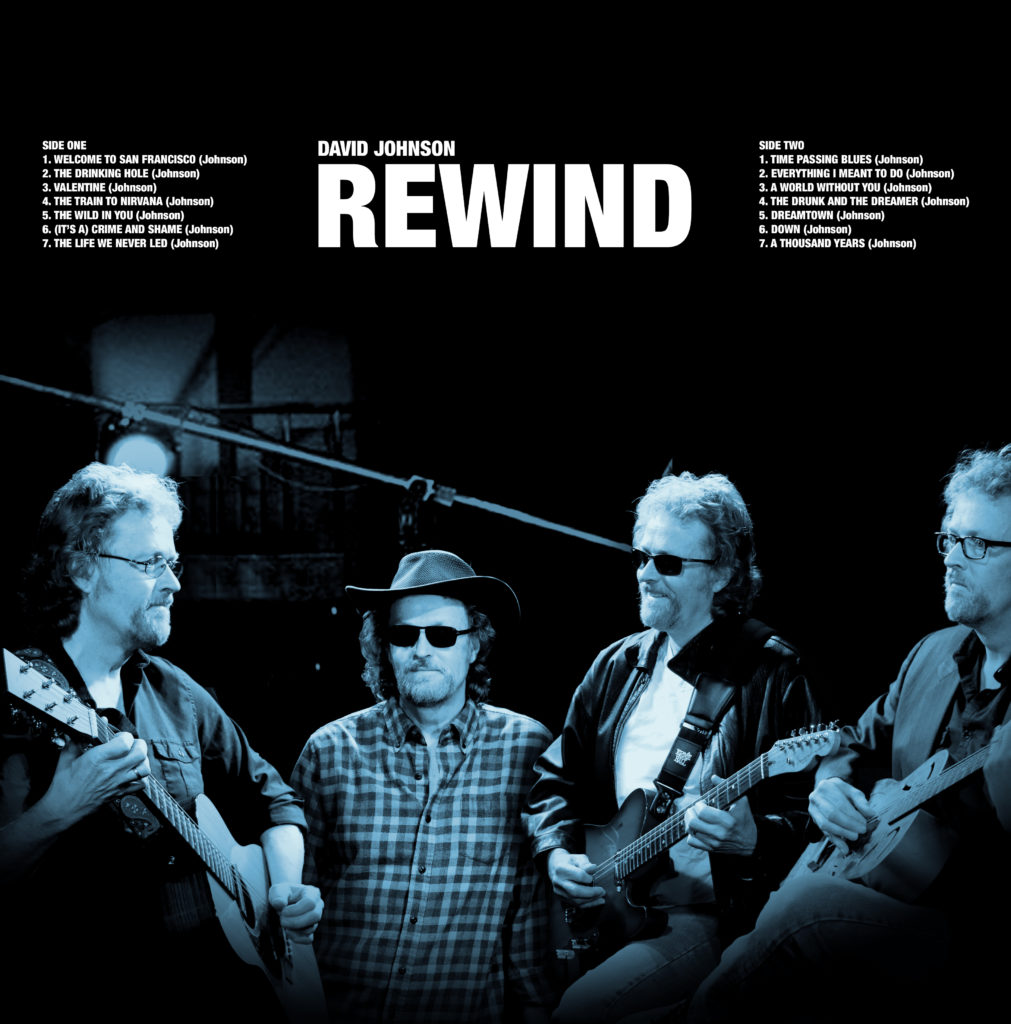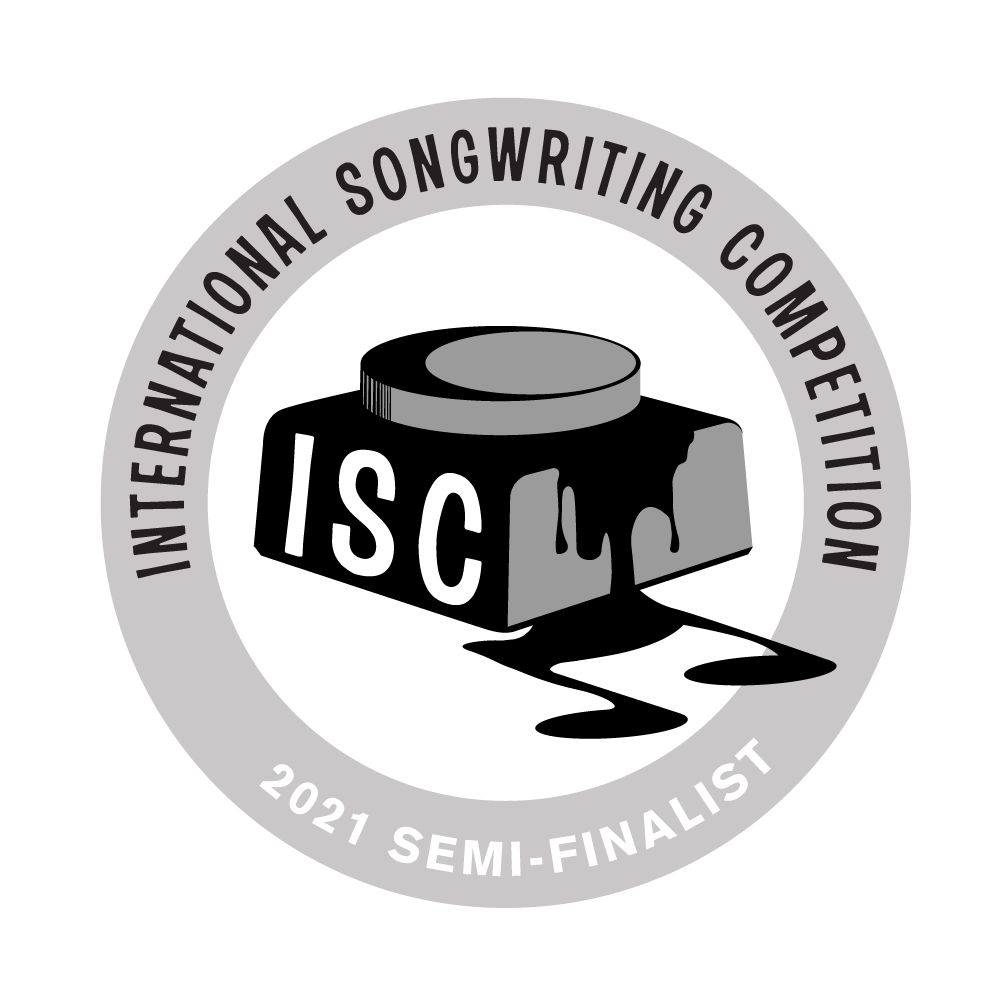Rewind is a personal response to one of the greatest albums of the classic rock era:
REVOLVER, by The Beatles.

The album will be released on July 11, 2023. It will be available on all major streaming platforms. It was recorded from July 2021 through January 2022, and was produced by Gawain Mathews.
The performers:
- David Johnson: vocals, guitars, keyboards, programming
- Gawain Mathews: bass, keyboards, percussion
- Kyle Caprista: drums
The Music
The Story
Did I write a song-by-song riposte to Revolver (a la Exile In Guyville)? Not quite.
Explicit match: Some of these songs are absolutely, directly inspired by their counterparts on Revolver: The Train To Nirvana is a response to Love You To; Time Passing Blues subverts Good Day Sunshine; Got To Get You Into My Life inspired me to write my own soul-blues tribute, (It’s A) Crime And Shame; A Thousand Years is inconceivable without Tomorrow Never Knows.
Sequencing: Other songs weren’t explicitly written to mimic Revolver, but they owe their position in the lineup to how they match the way that Revolver flows. When I was planning the album, I needed a role model—where should I put a rocker? A ballad? A psychedelic song? The songs were eclectic, and I wanted them to flow nicely from song-to-song as they went through their various moods. Revolver presents a masterful example of eclecticism that still feels connected and organic
Sound & performance: the Beatles were my earliest and strongest songwriting influence. As I worked with Gawain Mathews, my producer, to record the album, Revolver was our touchstone and guided many of our production decisions. When we hit a roadblock, we went back to the Beatles to see how they solved it. When we debated the right beat for a song, we listened to Ringo. When we wanted a sound effect, we listened to the same tape libraries that the Beatles used on their later productions. And harmonies, of course
Ultimately, I was chasing a feeling. I wasn’t trying to match Revolver song-for-song, mood-for-mood; I was using a similar group of influences (pop, rock’n’roll, soul, psychedelia, Indian music) as building blocks, making a statement that was simultaneously modern and retro. A couple of songs are pretty left-field (Down and The Wild In You are the least Beatles-ish), but even with those, Gawain and I were responding to Revolver‘s most outlandish production flourishes, trying to cover the huge swath of ground that it opened up for me as a writer, and for rock music in general. Without being too imitative, I tried to honor it. I was answering a question:
When I listen to Revolver, how does it make me feel? What does it make me want to write?
Song-by-song
Welcome To San Francisco: This tells the story of the beginning of a love affair, set against the backdrop of San Francisco. It’s a reminder of how romantic the city can be: the music, the lights, the walks on the hills. San Francisco is a place where people fall in love: with each other, with ideas, with the possibilities for the future.
Welcome To San Francisco was a semi-finalist in the 2021 International Song Competition, in the Rock category.

The Drinking Hole: This was originally going to be the opening song (hence the “1-and-uh” countoff, to match Taxman‘s opening). But my wife pointed out that the song may be too raucous, and that Welcome To San Francisco provided an easier point-of-entry to the album. Because maybe a Celtic punk song about an unrepentant alcoholic, rejecting love and redemption—insulted by the very idea of love and redemption—isn’t the universally catchy opening that I envisioned.
Valentine: Thematically, this is exactly Here, There, And Everywhere. Musically, I was guided by I’m Only Sleeping, emphasizing drones rather than distinct guitar parts. But let’s be honest—my real role model for the song is Elvis Costello, more than the Beatles. If I ever made an answer record to Armed Forces, this would be my Party Girl.
This was written for my wife, Stacey. She asked me once why my relationship songs are so dark, and why I couldn’t write a song called, “To my beautiful wife, Stacey, whom I love.” That’s exactly what Valentine is.
The Train To Nirvana: Musically, it’s pure Beatles, down to Kyle Caprista’s Ringo-style snare hits, and Gawain’s wonderful string and mellotron arrangements. The wheezy, garbled saxophone at the end (courtesy of the Mellotron) is beautifully pathetic.
Lyrically: well, umm… so, members of the haute-bourgeoisie begin to realize that their country is sliding into fascism, and that their wealth and power will no longer protect them. Again, I may not be the best judge of radio-hit fodder.
The Wild In You: I learned everything I know about the way a verse explodes into a chorus, and the way a bridge slides into and out of the rest of the song, from the Beatles. Even a song like this, which isn’t particularly Beatles-ish, would never have taken this form if I hadn’t obsessively listened to the Beatles from grade school into high school.
(It’s A) Crime And Shame: I wrote this to match Got To Get You Into My Life. Vocally, I was aiming for something between Otis Redding and Bobby “Blue” Bland (and the guitar stabs were inspired by some of Wayne Bennett’s playing on Bland’s records). As the song fades, you can hear some of the frothier horn charts that I wrote, guided by the horns on Love’s Forever Changes, another of my all-time favorite albums.
The Life We Never Led: She Said, She Said ends side one of Revolver, and I wanted something similarly rocking, with the same swirl of guitars. The guitar solo and final verse owe a little to U2, as well.
This is another song I wrote for Stacey. If I could go back in time, knowing what I know now, and propose marriage all over again, I might say something like this.
Time Passing Blues: A song about my lifelong struggle with insomnia, and therefore a good match for Good Day Sunshine. My first album, The Moonlight Highway, focuses more on my acoustic guitar playing; I limited it to just this song and Down for REWIND.
Everything I Meant To Do: A fun rocker, in the mold of And Your Bird Can Sing, which is one of my favorite songs. As a kid, the second Beatles album I owned was the American Yesterday And Today, with the “butcher baby” cover lurking underneath the steamer trunk photo, and this song and If I Needed Someone were my two favorites.
A World Without You: A song about grief, specifically the grief of losing somebody you love, and an obvious match for For No One, which is perhaps the most haunting and heartbreaking song that Paul McCartney has written. This was the hardest song to record on the album. The original arrangement was guitar-driven rock, but Gawain and I weren’t satisfied, so we started playing ping-pong with the track—he would record a piece and send it to me, and then I’d record something in my home studio and send it back. After multiple stops and restarts, the song finally started taking its final form as “acid Americana”—the bowed acoustic guitar providing the weird drone that snapped the track into place.
The Drunk And The Dreamer: The other side 2 rocker, matching Dr. Robert. Here, the antics of a pill-pushing doctor get mutated into the warnings of a self-aware alcoholic, warning a potential partner before she becomes emotionally involved.
Dreamtown: An oddly-timed rocker, and so a good match for I Want To Tell You. The lyrics are very John-like—surrealistic images, which turned out to be surprisingly fun and easy to write.
Down: A clinically depressed person may finally be making it out of the darkness.
A Thousand Years: I always loved psychedelic music, even when I was a little kid. I liked music that took me on a journey, and that made me smile. I grew up listening to the Beatles, and watching the Monkees on TV. Those were my role models for music sounded like, and for what music looked like. When I started writing my own songs, those bands were imprinted on me, DEEPLY. A Thousand Years owes everything to the Beatles, and particularly Tomorrow Never Knows; it was always going to be the closing song. But if you’ve ever watched the Monkees, you may recognize Daily Nightly (was the coolest video I’d ever seen) in its DNA as well. Daily Nightly was totally psychedelic, but it was also FUN. I wanted this song to be fun. That’s why the lyrics are so silly—I want to smile when I listen to it.